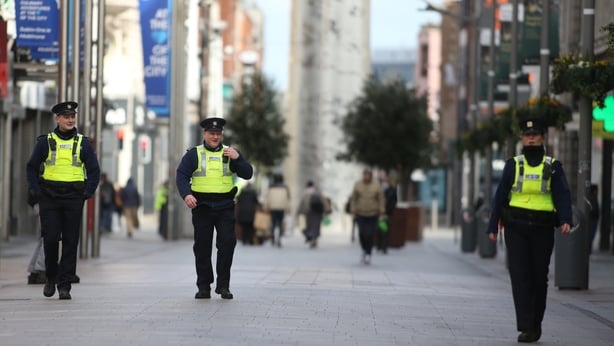Minister for Justice Charlie Flanagan has said that the temporary powers given to An Garda Síochána were necessary and in the interests of the protection of public health.
Speaking in the Dáil, the Minister paid tribute to frontline workers, including gardai, prison officers, court officers and staff and immigration officers in managing the response to Covid-19.
And he emphasised that the new and temporary powers were due to the fact that the gardai play a key role in the protection of public health.
He said appropriate oversight has been given to the tradition in the State of policing by consent and adhering to human rights obligations.
Minister Flanagan said they ensure that gardai engage, explain and encourage the public to comply and only as a last resort use the enforcement powers.
Minister Flanagan said that he has asked the Garda Commissioner to compile and publish a record of the use of the powers which is being done on a weekly basis, and said that he has requested the Policing Authority to independently assess and report regularly on the use of the powers.

Minister Flanagan also appealed to victims of domestic violence to come forward and seek help.
He said the State and frontline services were standing together to support victims, while acknowledging that being asked to stay at home must be an added risk and a real sense of fear for victims of domestic abuse.
In relation to the prison service, the Minister said that a range of measures had been taken to safeguard the wellbeing of prisoners.
He said these measures include a reduction in prisoner numbers, cocooning vulnerable prisoners, isolation and testing, trained contact tracing teams and suspension of family visits.
And regarding Direct Provision, he said that the Government recognised the need for offsite self isolation facilities from the outset of the pandemic.
He said four suitable premises were identified in Dublin, Cork, Limerick and Dundalk with a capacity for 299 people.
The Minister said over 600 residents have been relocated to support social and physical distancing measures in centres.
He also said the number of people sharing a room had been reduced to a maximum of three.

